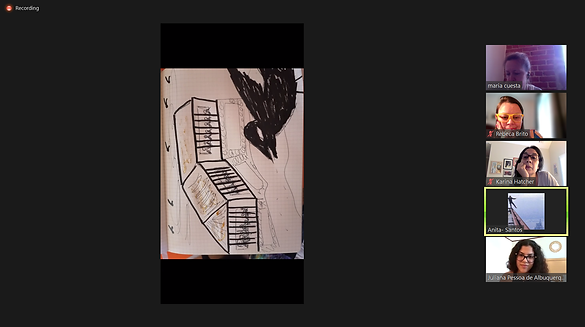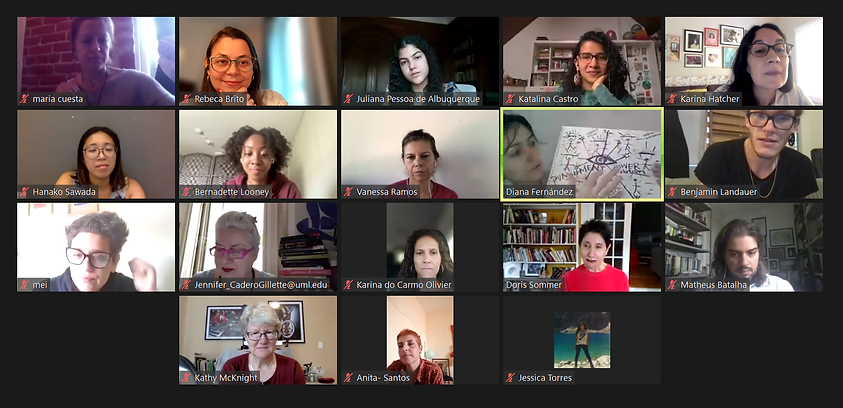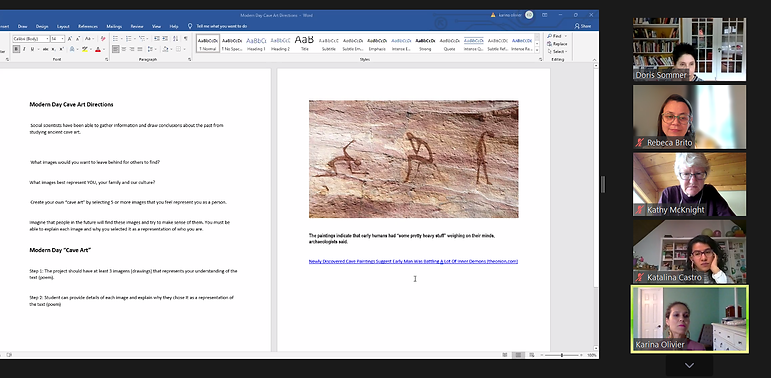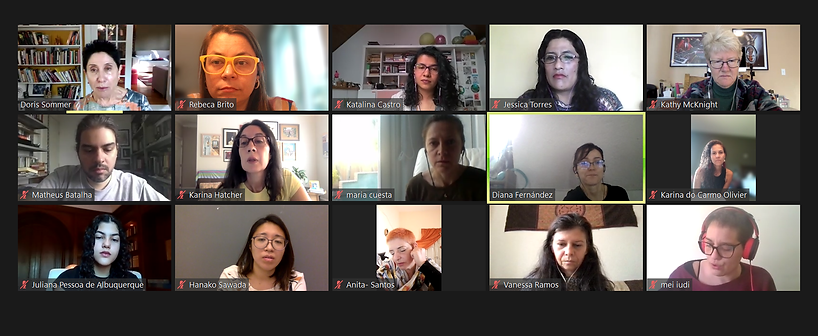
Professor Doris Sommer and Rebeca Brito are led a virtual International Pre-Texts workshop for facilitators. 21 participants from 9 countries enjoyed the sessions. The text used was Panopticism III, a chapter of the book “Discipline & Punish” by Michel Foucault. Amazing activities involving arts were developed from the text.

In the first session, the participants had the opportunity to know more about Pre-Texts and had their first contact with the Foucault text. Through the text, they created a book cover using cardboard and other recyclable materials.
The Pre-Text workshop is helping me to reflect regarding my own fears as a learner, the fear of expressing myself sometimes, to be judge, but It is also empowering me to be brave to challenge myself with all the activities that we are learning in the workshop. Through the Pre-text workshop activities like drawing, collage and music, it made it easier for me to understand the text and absorb the knowledge. It is helping me to appreciate one another, even though we are so different, but we are also connected.
Karina Olivier

The second session started with the “go off on a tangent” activity. The participants shared texts related to the text read in the first session (Panopticism). Then, one participant became a facilitator, proposing a drawing/writing activity to the group, as described below:
 The proposed activity was inspired by the designs of the “The First New Chronicle and Good Government”, by Felipe Guamán Poma de Ayala, and the “New coronavirus and good government. Memories of the COVID-19 pandemic in Peru”, by Edilberto Jiménez.
The proposed activity was inspired by the designs of the “The First New Chronicle and Good Government”, by Felipe Guamán Poma de Ayala, and the “New coronavirus and good government. Memories of the COVID-19 pandemic in Peru”, by Edilberto Jiménez.
The participants were invited to draw scenes from the text in the form of portraits, sarcastic scenes, or historical representations of the text Panoptism by Michel Foucault. They also wrote a paragraph about the their drawing.

The third session started with the “go on a leaf” activity. The participants shared excerpts from Foucault’s book that impressed them. It was a wonderful way to dive deeper into to the book.
The proposed activity called “The bodies and the text”, was inspired by José Maria Muñoz Terrón, and involved mixed media, collage, and art of images linked by association.

In this session, it was evident the importance of the silence. The moments of silence allow the participants to realize who should speak. The facilitator must to wait for the group’s perceptions.


The forth session started with the “go off on a tangent” activity.
The proposed activity was “Dadaistic Mnemonic Collage Expressive Circle”. This activity involved the writing of words and paragraphs, performances, reading, etc.

During this session we learned the importance of PROPOSING the activity, inviting the group to do questions and recommendations, and allowing them to decide what they want to do. In Pre-Texts everyone answers the questions, so the activity is built by the group.
 |
 |


The proposed activity was based in the reading of the Mapucho Poem. The text was presented in the Mapuche language, Spanish, and in English. During the poem reading, the participants were invited to occupy their hands. After, the text in English and in Spanish were made available and the participants made a question to the text.

The other proposed activity using the poem was to create something (free art) using elements of the Mapuche arts and/or culture.


In the last session, the participants shared their intervention programs. In small groups, they presented what they planed to do with Pre-Texts and discussed questions and recommendations from their peers.


In sequence, with the whole group, questions were asked about the methodology, stimulating a very rich conversation. Final insights were shared and a waiver was chosen to keep the group on track during the implementation phase until they obtain the facilitator certificate.